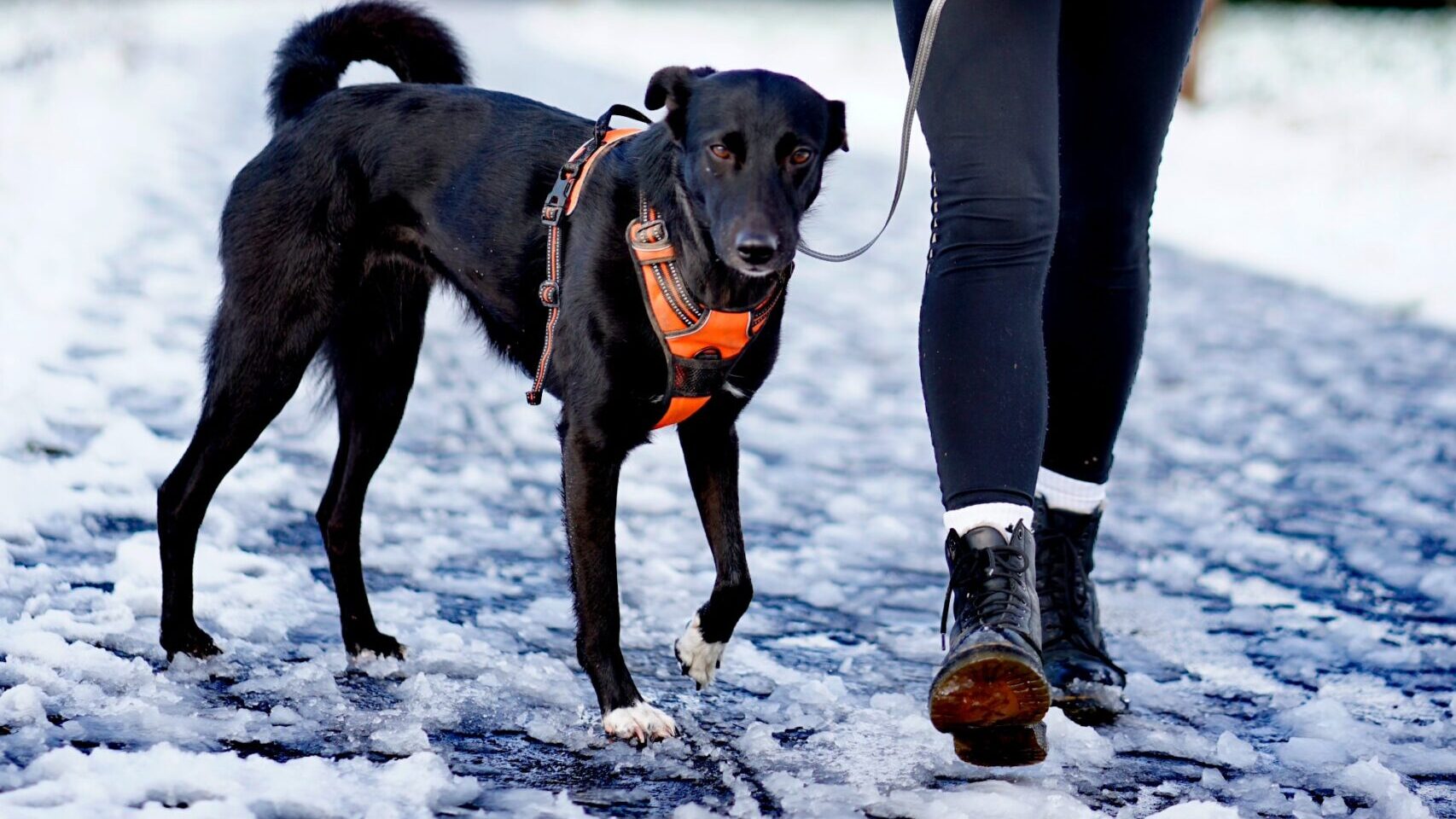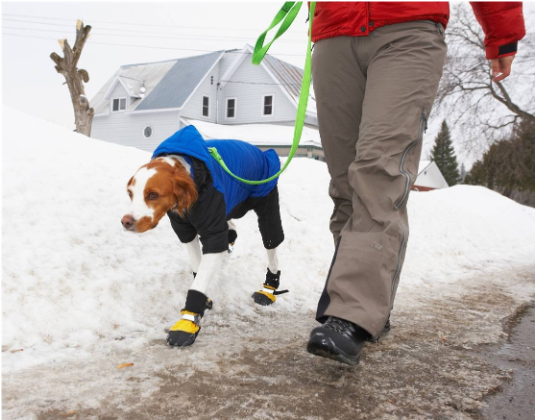Winter Prep for Your Furry Friend: Keeping Your Dog or Cat Cozy & Safe

Written By: Taylor Wilkins
As the days grow shorter and the temperature drops, it’s essential to prepare your beloved pets for the challenges that winter can bring. Dogs and cats can be vulnerable to the cold weather, but with a little extra care and attention, you can ensure they stay warm, healthy, and happy throughout the winter season. In this blog post, we’ll provide you with some essential tips for winter preparation for your dog or cat.
Keep Them Indoors: While some dogs may enjoy the snow and cold, it’s best to limit outdoor exposure during extreme winter conditions. Shorten your dog’s walks and avoid prolonged outdoor playtime. Cats, especially indoor cats, should be kept inside during winter to prevent frostbite or hypothermia.
Bundle Up: If you must take your dog outside in cold weather, consider investing in a doggy sweater or coat to keep them warm. Breeds with short fur or low body fat are more susceptible to the cold and may benefit from extra insulation.
Protect Their Paws: Snow, ice, and road salt can be harsh on your pet’s paws. Consider using pet-friendly booties or paw wax to protect their sensitive footpads. After walks, be sure to wipe their paws to remove any salt or chemicals.
Watch for Signs of Hypothermia: Signs of hypothermia in dogs and cats include shivering, weakness, lethargy, and a decreased heart rate. If you notice any of these symptoms, warm your pet up immediately and contact your veterinarian.
Maintain a Consistent Diet: During the winter months, your pet may burn more calories to stay warm. Adjust their food intake accordingly, but consult your vet to ensure you’re meeting their specific nutritional needs.
Provide Adequate Shelter: If your dog spends time outdoors, make sure they have proper shelter. A well-insulated doghouse with a raised floor and bedding can help protect them from the cold. Cats that roam outside should have access to a warm, dry place to retreat to.
Keep Antifreeze Away: Antifreeze is toxic to pets and has a sweet taste that can be appealing to them. Ensure that any antifreeze spills are cleaned up promptly and store containers out of your pet’s reach.
Maintain Regular Grooming: Regular grooming is essential in the winter to prevent matting in long-haired breeds. A clean, well-brushed coat can provide better insulation and help regulate body temperature.
Provide Mental Stimulation: Cold weather can lead to cabin fever. To combat boredom, engage your pet in indoor activities like puzzle toys, treat-dispensing toys, or interactive playtime.
Consult Your Veterinarian: Every pet is unique, and their winter needs may vary. Consult your veterinarian for personalized advice on winter care, including vaccinations, dietary changes, and any specific health concerns.
Winter can be a challenging season for your furry friends, but with proper preparation and care, you can ensure their safety and comfort. By following these tips, you’ll be well on your way to keeping your dog or cat happy and healthy throughout the winter months. Remember, a little extra attention goes a long way in ensuring that your pet thrives in the cold season.
Share this resource
[addtoany]Contact Us
Whether you’re looking to adopt, volunteer or simply want to chat about your love for animals, we’re all ears (and paws). Contact us today!




